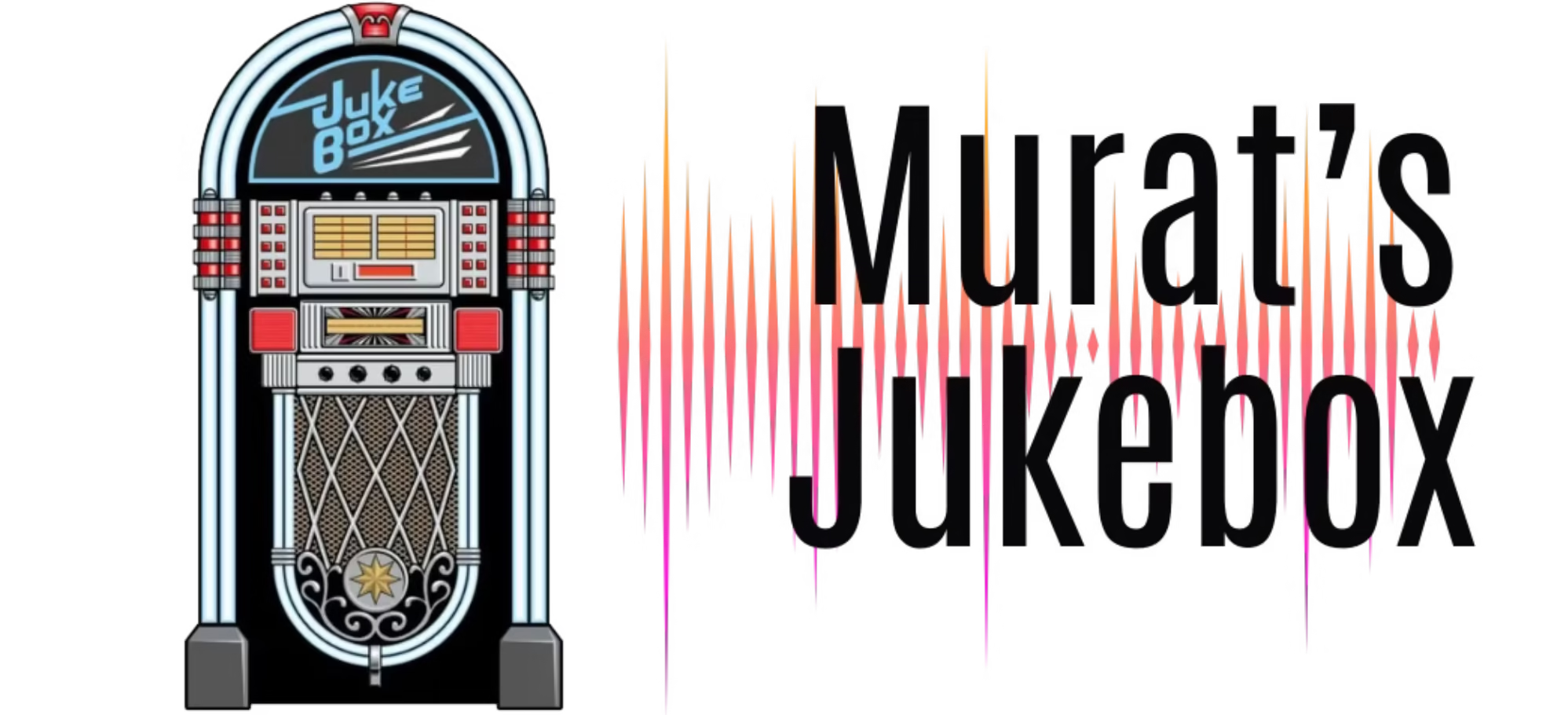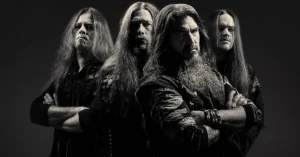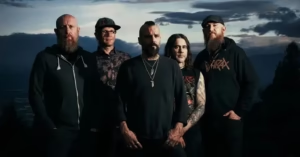Accept: The Teutonic Titans of Heavy Metal
Accept. The Birth of German Steel: Early Days (1976–1980)
Formed in Solingen, Germany in the mid-1970s, Accept became one of the first bands to put on the international map. The group’s origins trace back to local vocalist Udo Dirkschneider, guitarist Wolf Hoffmann, and bassist Peter Baltes, who shaped Accept’s aggressive, riff-driven sound and militaristic aesthetic.
Their self-titled debut album, released in 1979, showed promise, but it wasn’t until the follow-up I’m a Rebel (1980) that the band began to gain real traction. With its -style riffs and straightforward structure, it hinted at the power that Accept would soon unleash.
Accept. Breaking Sound Barriers: 1981–1986
The 1980s were Accept’s golden era, during which they not only defined their sound but also influenced the broader development of speed and thrash metal.
Breaker (1981)
Accept began to distance themselves from hard rock clichés and move into heavier territory. Songs like “Starlight” and “Breaker” showcased high-octane riffing and Udo’s now-iconic gravelly voice.
Restless and Wild (1982)
A game-changer. The track “Fast as a Shark” is often cited as one of the first true speed metal songs, predating thrash’s mainstream rise. With furious guitar work and relentless drumming, it was groundbreaking and deeply influential.
Balls to the Wall (1983)
Their most famous and commercially successful album. The title track became an anthem of defiance, featuring a massive, slow-churning riff and a controversial (and misunderstood) music video. The album balanced heavy metal muscle with provocative lyrics touching on freedom and justice.
Metal Heart (1985)
With polished production by Dieter Dierks (Scorpions), this album showcased Wolf Hoffmann’s neoclassical guitar tendencies. Tracks like “Midnight Mover” and the Beethoven-inspired “Metal Heart” highlighted Accept’s ability to mix musical complexity with brute force.
Russian Roulette (1986)
A darker, heavier record, reflecting Cold War tensions and moving toward more serious lyrical themes. While not as commercially successful, it remains a fan favorite for its intensity and depth.
Accept. Internal Tensions and Udo’s Departure (1987–1996)
As the 1980s ended, friction within the band emerged. Udo Dirkschneider left in 1987 to pursue a solo career with his band U.D.O. Accept continued with new vocalist David Reece, releasing Eat the Heat (1989). The album had a more melodic and Americanized sound but received lukewarm reviews and alienated many long-time fans.
Following this period, Accept went on hiatus, briefly reuniting with Udo in the early 1990s to release Objection Overruled (1993), Death Row (1994), and Predator (1996). These albums reconnected somewhat with their earlier sound but never fully reignited their international prominence.
Accept. The Rebirth of Accept (2010–Present)
Accept returned triumphantly in 2010 with a new singer — Mark Tornillo, formerly of TT Quick. This unexpected comeback exceeded all expectations, breathing new life into the band and winning over both old and new fans.
Blood of the Nations (2010)
An astonishing return, hailed as one of the best metal albums of the decade. With massive riffs, Mark Tornillo’s fierce vocals, and modern production, Accept proved they were far from finished.
Stalingrad (2012) and Blind Rage (2014)
Both albums continued their resurgence. Blind Rage even reached No. 1 in Germany, a first in the band’s career. Songs like “Teutonic Terror” and “Stampede” reaffirmed their ferocity.
The Rise of Chaos (2017) and Too Mean to Die (2021)
Despite lineup changes and global challenges (including the pandemic), Accept have remained prolific and consistent. Their recent output maintains the band’s trademark balance of power, melody, and military precision.
Accept. Members: Then and Now
Classic Lineup:
- Udo Dirkschneider – Vocals (1976–1987, 1992–1997)
- Wolf Hoffmann – Guitar (1976–present)
- Peter Baltes – Bass (1976–2018)
- Stefan Kaufmann – Drums (1979–1994)
Modern Lineup (as of 2024):
- Wolf Hoffmann – Guitar
- Mark Tornillo – Vocals
- Uwe Lulis – Guitar
- Martin Motnik – Bass
- Christopher Williams – Drums
- Philip Shouse – Guitar
Legacy and Influence
Accept’s impact on heavy metal is vast:
- Pioneers of speed metal: “Fast as a Shark” laid the groundwork for thrash and power metal.
- German metal ambassadors: Alongside Scorpions and Helloween, Accept helped legitimize German heavy metal internationally.
- Riff masters: Wolf Hoffmann’s guitar work is among the most respected in metal history.
- Lyrical themes: From war and rebellion to morality and justice, their songs often transcend simple rock tropes.
They influenced bands like Metallica, , Helloween, Sodom, Primal Fear, and countless others in the Euro and US metal scenes.
Interesting Facts
- “Balls to the Wall” was banned or edited on several platforms due to its provocative title and video.
- Udo Dirkschneider has often performed Accept songs live with his own band — a source of some controversy.
- Wolf Hoffmann is also a professional photographer and released a solo album, Headbangers Symphony, featuring metal renditions of classical pieces.
- Despite being German, Accept’s lyrics have always been in English — making them more accessible internationally.
Essential Studio Albums
| Year | Album | Highlights |
|---|---|---|
| 1982 | Restless and Wild | “Fast as a Shark,” “Princess of the Dawn” |
| 1983 | Balls to the Wall | “Balls to the Wall,” “London Leatherboys” |
| 1985 | Metal Heart | “Metal Heart,” “Midnight Mover” |
| 1993 | Objection Overruled | “I Don’t Wanna Be Like You,” “Slaves to Metal” |
| 2010 | Blood of the Nations | “Teutonic Terror,” “The Abyss” |
| 2014 | Blind Rage | “Stampede,” “Final Journey” |
| 2021 | Too Mean to Die | “Zombie Apocalypse,” “The Undertaker” |





